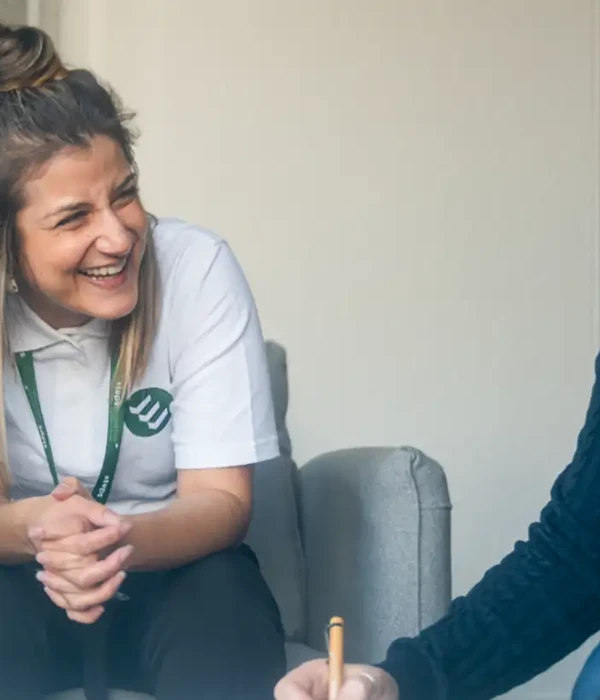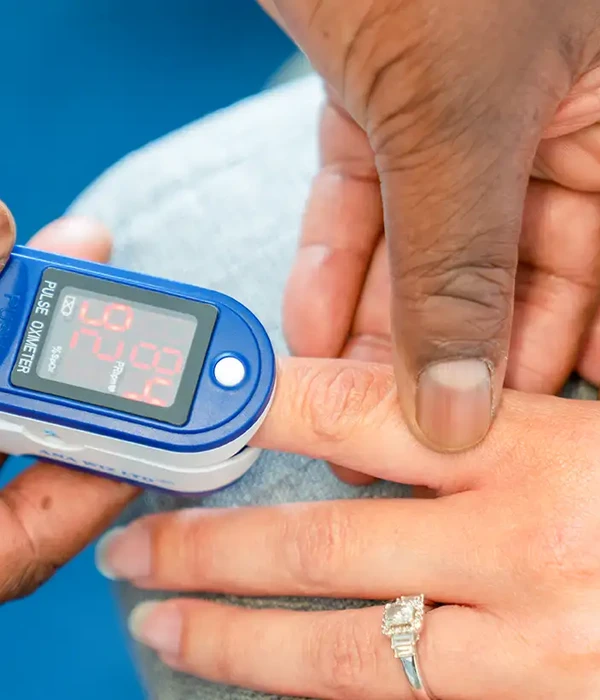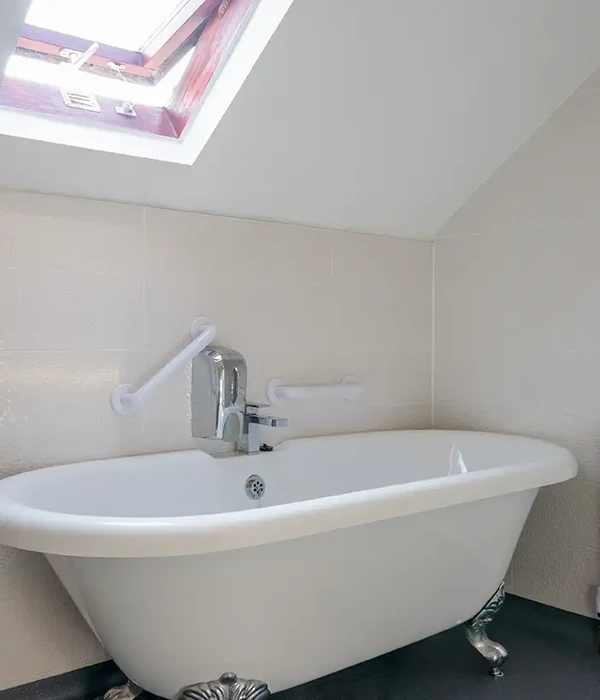PCP Addiction Treatment
PCP affects your mind and body in serious ways. It can cause confusion, aggression, and long-term health problems if left untreated. With the right help, you can stop using PCP and regain control of your life.
Taking action may seem hard, but support and guidance are always within reach, and there are PCP addiction treatment options available to support your recovery. Understanding your drug rehab choices is the first step in your recovery.

Take the First Step Towards Recovery
Steps Together offers personalised support and proven treatments, providing the care, guidance and encouragement you need to move forward with confidence and build a healthier future.

An Overview of PCP Addiction
PCP, or phencyclidine, is a powerful substance with a high potential for addiction. Misuse of this drug can lead to major changes in the way your mind and body function. Also called ‘angel dust’, it is a synthetic hallucinogen that was originally developed as an anaesthetic. It is now illegal for medical use because of its serious side effects.
You may hear PCP sold as powder, liquid, or tablets. It is usually smoked, swallowed, snorted, or injected. The effects can begin within minutes and last for several hours, leading to both physical and mental health dangers. Hallucinogens, including PCP, are used by a fair number of people.
Is PCP Addictive?
Yes, and addiction to PCP can develop after just a few uses. This drug creates both physical and psychological dependence, meaning your brain and body start to rely on it. The compulsion to keep using, even after you notice negative effects, is a key warning sign of PCP addiction.
You may find it hard to stop despite the risk of physical harm, legal trouble, or problems with relationships. If you use PCP often, adverse effects such as cravings, depression, and memory problems can occur when you try to stop.


Immediate Effects of PCP Use
The immediate effects of PCP can begin within minutes of use and vary depending on the dose. Users may experience a sense of detachment from their body or surroundings, altered perception of time and space, and feelings of euphoria or invincibility.
PCP can also cause numbness, slurred speech, and a blank stare. Some people report having hallucinations or distorted sensory experiences. These effects can last for hours and may often shift unpredictably in intensity throughout the experience.
Therapeutic Approaches to Treating Phencyclidine Use
Treating PCP addiction often requires different therapies and a strong support system. These methods can help you address both the mental and social effects of substance use while giving you tools to prevent relapse.
Cognitive Behavioural Therapy
Cognitive Behavioural Therapy (CBT) focuses on helping you recognise unhealthy thoughts and behaviours related to PCP use. It teaches you how to replace negative thinking patterns with healthier ones.
CBT is evidence-based and widely used in addiction recovery programmes. It gives you specific skills for coping with triggers, controlling cravings, and preventing relapse. You learn to spot situations that make you want to use PCP and discover healthier ways to respond.
Individual Therapy
In individual therapy, you work privately with a therapist to set goals, develop coping strategies, and build self-confidence. Counsellors also support you in improving your relationships and dealing with life changes during recovery.
Many rehabilitation centres emphasise counselling because it offers a safe environment to talk openly about addiction and its impact on your life. Counselling helps you rebuild relationships, set achievable recovery targets, and plan for the future.
Dialectical Behaviour Therapy
Dialectical Behaviour Therapy (DBT) builds on CBT but adds a focus on managing emotions and improving relationships. This therapy may be especially helpful if you struggle with mood swings, anger, or impulsive behaviours linked to PCP use.
With DBT, you learn four main skills: mindfulness, distress tolerance, emotion regulation, and interpersonal effectiveness. Practising these skills helps you stay calm when you feel stressed or overwhelmed.
Support Groups and Recovery Programmes
Support groups give you the chance to share your story and hear from others who also struggle with PCP use disorder. These groups often include structured sessions focused on recovery education, coping techniques, and relapse prevention.
Attending meetings like Narcotics Anonymous offers ongoing emotional support and motivation. Recovery programmes may also include aftercare planning, education, and family involvement.
Other drug addictions we treat at our rehab centre

Long-Term Treatment for PCP Abuse
Staying drug-free after treatment requires a strong plan for the months and years ahead. Aftercare programmes help you cope with triggers, avoid isolation, and maintain healthy routines. Common options include outpatient therapy, support groups, and follow-up medical appointments.
Relapse prevention focuses on teaching you how to manage cravings, recognise warning signs, and use healthy coping skills. Many people find it helpful to build a network of people who understand addiction, such as family, friends, and recovery sponsors.
Addressing Co-Occurring Disorders
Addiction and mental health conditions often go hand in hand with each other. You may face issues like depression, anxiety, or post-traumatic stress disorder alongside PCP use. It’s important that your treatment team checks for these conditions at the start.
Addressing both the use of PCP and co-occurring mental health needs at the same time is key to lasting recovery. Some clinics use integrated care models that combine mental health and drug treatment. This means your therapy sessions and medication plans will target both issues.

Signs and Symptoms of PCP Use
Odd or aggressive behaviour is common under the influence of PCP. People can become agitated or violent without warning. Experiencing strong outbursts, confusion, or even euphoria is possible. They may show signs of dissociation, as if they are detached from themselves or their environment.
PCP has many physical effects on the body. Common effects of PCP may include slurred speech, unsteady movements, and poor coordination. A person might seem dizzy, stumble, or have trouble standing or walking.
PCP use affects how the brain works. You will likely notice hallucinations (seeing or hearing things that aren’t real) and delusions (strong, false beliefs). Some users develop psychosis, losing touch with reality or becoming paranoid.
PCP Addiction Treatment Options
PCP addiction treatment involves both medical and behavioural approaches. Substance use disorder rehab options aim to manage withdrawal symptoms, reduce cravings, and help you regain control over your life.
Medical Detox and Withdrawal Management
Medical detox is often the first step in PCP addiction treatment. Healthcare professionals supervise to make sure you are safe as the drug leaves your body. PCP withdrawal symptoms may include confusion, agitation, and body aches. In some cases, symptoms may include hallucinations, anxiety, or severe mood changes.
Detoxification usually takes place in a hospital or dedicated facility, especially if you have severe withdrawal symptoms or other health issues. The staff may use medicines to help manage discomfort and reduce the risk of medical problems. You may also get fluids and nutrients if you are not eating or drinking enough.
Outpatient Programmes
Treating PCP can also include a flexible outpatient treatment plan. You attend scheduled appointments for counselling, therapy, and check-ins while living at home. This is a good choice if you have mild or moderate dependence and a stable home life. Outpatient care can include both group and individual therapy.
Support from family, friends, and community groups is important for success. Outpatient PCP addiction treatment programmes can also connect you with resources for employment, housing, and health needs.
Residential PCP Rehab
Inpatient treatment provides structure and constant support. You stay at a treatment centre and take part in daily therapy sessions, group support, and skill-building activities. This level of care is important if you have a long history of PCP misuse, severe substance abuse, or other mental health problems.
PCP treatment often includes one-to-one counselling, group discussions, and education about addiction. You will learn how to manage cravings, recognise triggers, and develop healthier behaviours. Staff work with you to create a plan for continued recovery.

PCP Abuse and Addiction Can be Treated
Recovery from drug addiction is possible, even when it feels out of reach. Many people have successfully overcome PCP addiction with the right support and treatment. Comprehensive PCP addiction treatment addresses both the physical and psychological aspects of substance use.
At Steps Together, we’ll help you get through addiction with a hallucinogen addiction treatment programme that caters to your needs. With commitment, professional guidance, and a strong support system, you can rebuild your life and move toward lasting recovery.
Frequently Asked Questions
What are the first steps in seeking treatment for PCP dependency?
You should reach out to a healthcare professional or addiction specialist as soon as possible. An assessment will help to determine your personal needs and suggest the most effective treatment for PCP addiction. Early action improves your chances of recovery.
What therapy options are effective for overcoming addiction to hallucinogens?
Behavioural therapies such as cognitive behavioural therapy and motivational interviewing can help you identify triggers and develop coping skills. Group therapy or individual counselling is often included in treating addiction.
What support systems are crucial for maintaining sobriety from PCP?
Support systems like family, friends, and formal support groups play a vital role. Connecting with relapse prevention groups and engaging in ongoing therapy can help you stay on track. Professional guidance is also important if you feel at risk of using again.
How does one safely detox from PCP?
Detoxing from PCP should be done under medical supervision. Professionals can help manage withdrawal symptoms, lower health risks, and make you as safe and comfortable as possible. Attempting to detox alone is not recommended.
Can long-term recovery from PCP abuse be sustained without medication?
Long-term recovery is possible without medication for many people, especially with strong support and therapy. Medication is not always required for PCP addiction, as treatment usually focuses on therapy and support groups.
Are there specific rehabilitation programmes tailored for hallucinogen addiction?
Yes, there are rehab programmes that specialise in treating hallucinogen addiction, including PCP. These often combine detox, therapy, and aftercare planning. Individual plans consider your unique situation and needs, giving you the best chance of overcoming long-term PCP use.





